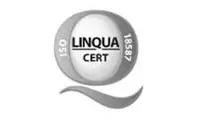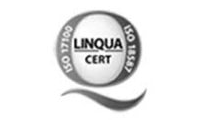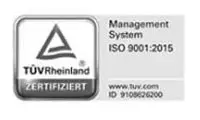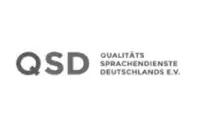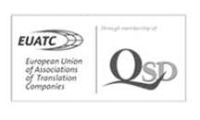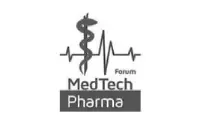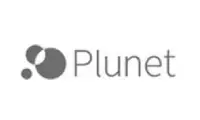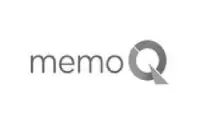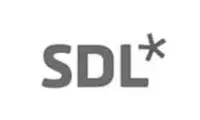
Regulation – Translations – Expertise
Your success on the
international market
What you need to know
Food supplements are foods that contain vitamins, minerals and bioactive substances in concentrated form. They are available in capsule, tablet or powder form.
They are clearly different from medicinal products as they have no medicinal effect and are not intended to treat or prevent diseases.
In the EU, Directive 2002/46/EC regulates their composition and labelling, while each EU country sets its own limits on maximum quantities.
This affects translations in this field and requires localisation instead of 1-to-1 translation. Terminology that is used for medicinal products must be avoided for food supplements.
Products must also be “internationalised” during the manufacture and composition of the food supplements as other EU states often have different national requirements.
Precise and legally compliant translations are therefore essential for the international market as errors can lead to official warnings or delays to market launch.
Advertising statements and product labels must comply with national and EU regulations to avoid legal problems.
Trustworthy products in all markets with mpü
Specific characteristics regarding regulations, labelling and product information
Food supplements must provide clear information about their ingredients, recommended intake and safety warnings. Regulation (EU) No. 1169/2011 (Food Information to Consumers Regulation, FICR) provides detailed information about the requirements for labels, package inserts and packaging.
This includes:
- Products labelled as “food supplements”
- Ingredients (vitamins, minerals etc.)
- Information on dose and administration (with recommended daily dose)
- Reference quantities for vitamins and minerals (NRVs)
- Permissible nutrient and health information (health claims)
- Information on the correct use and storage
- Specific warnings, which may vary by country
mpü’s professional translation ensures that the product labels remain legally compliant internationally and that there are no misunderstandings.
Your success on the international market starts with the right translations.
Health claims around the world
The right words for a strong message
Marketing for food supplements –
so your products remain legally compliant in every market!
Health promises are a sensitive topic.
The Health Claims Regulation (EC) No. 1924/2006
of the EFSA (European Food Safety Authority)
is binding for all EU member states and regulates
which health-related information can be used for foods and
food supplements.
However, there are national specificities in terms of
implementation and control.
Health claims – what is allowed and what is not?
Our example using 3 languages.
The Regulation distinguishes between:
Nutrient-related information
Statements about the nutrient content, e.g. (approved by the EFSA)
✅ “Rich in vitamin C” / “Riche en vitamine C” / “Ricco di vitamina C”
Requirement: the product contains at least 15% of the recommended daily allowance per portion.
✅ “Omega-3 fatty acids are a source of essential fatty acids” / “Les acides gras oméga-3 sont une source d’acides gras essentiels” / “Gli acidi grassi omega-3 sono una fonte di acidi grassi essenziali”
Health-related information
(health claims)
The statements relate to the health benefits of an ingredient and have been approved by the EFSA.
✅ “Vitamin C contributes to the normal functioning of the immune system.” “La vitamine C contribue au fonctionnement normal du système immunitaire” / “La vitamina C contribuisce alla normale funzione del sistema immunitario”
✅ “Omega-3 fatty acids contribute to normal heart function.” / “Les acides gras oméga-3 contribuent au fonctionnement normal du cœur.” / “Gli acidi grassi omega-3 contribuiscono alla normale funzione cardiaca.”
Disease-related information
These statements suggest a medical effect and are not permitted for food supplements.
❌ “Vitamin C protects against colds.” / “La vitamine C protège contre le rhume” / “La vitamina C protegge dal raffreddore”
(not scientifically proven and not approved)
❌ “Omega-3 fatty acids reduce blood pressure and protect against heart attacks.” / “Les acides gras oméga-3 abaissent la pression artérielle et protègent contre les crises cardiaques.” / “Gli acidi grassi omega-3 abbassano la pressione sanguigna e proteggono dagli attacchi di cuore.”
(not scientifically proven and not approved)
Please note:
The challenge in translating health claims and marketing texts lies in retaining the advertising nature without breaching the regulatory requirements.
Precise linguistic adjustments are essential to position products successfully in different markets.
Health claims and
national differences

Examples of national specificities in terms of implementation
The European Food Safety Authority (EFSA) regulates which health-related statements are approved in the EU Health Claims List (Health Claims Regulation (EC) No. 1924/2006). In countries such as Italy or France, however, some other national specificities are taken into account so products can be sold there with claims that would not be permissible in Germany.
The translation of health claims is therefore particularly tricky: it must reflect the approved wording exactly but also be adapted linguistically to the respective countries and national specificities. Imprecise or incorrect translations can have legal consequences.
The statements should not make any promises about healing –
food supplements are not medications.
Although the Regulation applies across the EU, there are national differences in terms of interpretation and implementation.
Science and documentation –
Precise translations for sound decisions
Each food supplement is based on extensive research. An accurate translation of scientific studies, safety assessments and technical dossiers is essential to meet regulatory requirements and win over experts. This includes:
Thanks to our expertise, your scientific texts remain precise, understandable and convincing in other languages too.
Clear words for healthy products
The right translation is critical
Each of these document types requires specialist translations. mpü translations offer the ideal solution, because we:
- Know the regulatory requirements precisely
- Provide precise scientific and technical translations
- Optimise marketing and health claims from a linguistic perspective without breaching regulations
Product labels and packaging texts
These documents must be translated in a legally watertight and user-friendly manner, as they have direct contact with the customer and come under the EU Food Information to Consumers Regulation (FICR).
Labels and packaging
- Product name and category (“food supplements”)
- Ingredients and composition
- Nutrient Reference Values (NRVs)
- Dose recommendation
- Warnings (e.g. “not to be used as a replacement for a balanced diet.”)
- Expiry date and information about storage
Package insert/instructions for use
- Recommended intake
- Compatibility with other products
- Notes on the target group (e.g. not suitable for pregnant women)
Advertising texts and claims
- Health claims (must be EFSA-compliant)
- Marketing statements for packaging and online shops
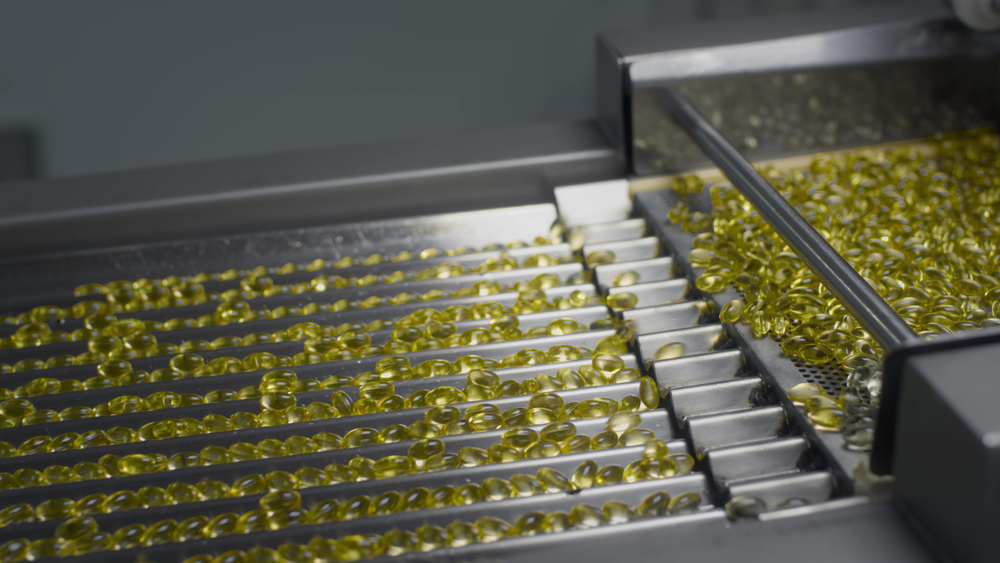

2. Scientific and regulatory documents
Scientific studies and regulatory documents are often required for the registration and safety of food supplements.
Dossiers for registration
- Novel food procedures for new ingredients
- Safety assessments and risk assessments
- Toxicological studies
Studies and scientific reports
- Clinical studies on the efficacy of ingredients
- Bioavailability studies (e.g. “how well is a vitamin taken up in the body?”)
- Meta-analyses and literature overviews
Analyses and laboratory reports
- Quality assurance tests
- Purity certificates
- Harmful substance and heavy metal tests
3. Legal and compliance documents
These documents are particularly important for international sales and must be translated accurately.
Marketing authorisation and registration documents
- Registration with national authorities (e.g. the Federal Office of Consumer Protection and Food Safety [Bundesamt für Verbraucherschutz und Lebensmittelsicherheit] in Germany)
- Certificates for export
Documents related to food law
- Conformity declarations for packaging
- Evidence of compliance with EU regulations
International marketing authorisations
- Requirements for specific countries (e.g. FDA documents for the US)


Technical and quality management documents
These documents are essential for manufacturers and distributors and often need to be available in several languages.
Product specifications and manufacturing procedures
- Production protocols
- Quality control reports
HACCP and GMP documentation
- Hazard Analysis and Critical Control Points (HACCP)
- Good Manufacturing Practice (GMP)
Supplier and certificate documents
- Raw material certificates
- Proof of origin
5. Marketing, sales and customer communication
Even advertising and customer-related documents need to be translated for the international market.
Product brochures and catalogues
- Presentation of the ingredients and benefits
- Sales arguments for distributors
Website and e-commerce descriptions
- Product descriptions for online shops
- SEO-optimised content for various markets
Social media and blog articles
- Health and lifestyle tips
- Specialist articles on nutrients
Customer support documents
- FAQs about products
- Responses to problems and complaints

We don’t just translate –
We ensure market success
mpü translations – your partner for perfect technical translations!
Why should you choose us for your translations in the field of food supplements? Because we don’t just translate, we also have the expertise to localise texts that are legally watertight, effective for advertising and scientifically substantiated.
- Specialised technical translators with experience in the field of food, pharmaceuticals and health products
- Knowledge of all relevant EU and national regulations for food supplements
- Precise and standardised translations of labels and advertising texts
- Scientifically precise translations of studies and technical documents
- Culturally adapted marketing translations that take into account the legal framework and the tone of the target group
With mpü translations, you’re always on the safe side
The translation of documents in the field of food supplements requires both linguistic precision and legal knowledge. Translation agencies must be familiar with the regulatory framework and ensure that their translations do not contain any misleading or unlawful statements. Particular attention must be paid to the Health Claims Regulation, the Food Information to Consumers Regulation (FICR) and the national reporting obligations for food supplements.

